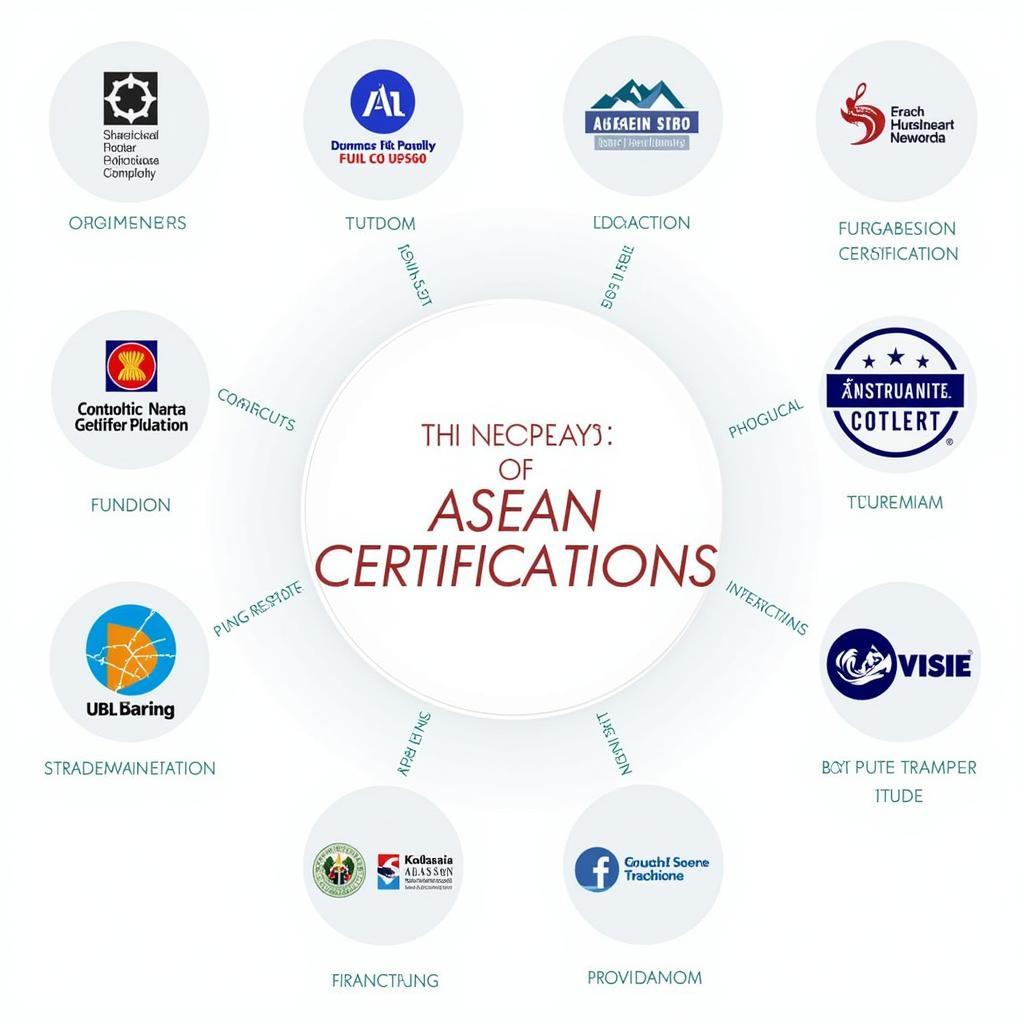The 5 Core Principles Of Asean Integration form the bedrock of this dynamic regional bloc’s success. They provide a framework for cooperation and collaboration, driving ASEAN towards its goals of economic growth, social progress, and cultural exchange. Understanding these principles is crucial to grasping the essence of ASEAN and its potential for future development.
What are the 5 Core Principles of ASEAN Integration?
The 5 core principles of ASEAN integration are:
- Mutual respect for the independence, sovereignty, equality, territorial integrity, and national identity of all ASEAN Member States
- The commitment to the common good, the renunciation of the threat or use of force, and the effective recourse to peaceful settlement of disputes
- Non-interference in the internal affairs of ASEAN Member States
- Cooperation among ASEAN Member States
- Effective decision-making based on consultation and consensus.
These principles, enshrined in the Treaty of Amity and Cooperation in Southeast Asia (TAC), guide ASEAN’s interactions and policies, fostering a harmonious and productive environment. They are essential for building trust, promoting stability, and facilitating deeper integration among the diverse nations of Southeast Asia.
Mutual Respect and Sovereignty: Cornerstones of ASEAN Cooperation
The principle of mutual respect acknowledges the diversity within ASEAN and emphasizes the importance of treating each member state as an equal partner. This principle is crucial for maintaining peaceful relations and fostering cooperation in such a diverse region.
Peaceful Conflict Resolution: A Commitment to Dialogue
ASEAN is committed to resolving disputes through peaceful means. This commitment reflects the region’s desire to avoid conflict and maintain stability, which are prerequisites for economic growth and social development. This commitment also underlies the establishment of various conflict resolution mechanisms within ASEAN.
Non-Interference: Respecting National Sovereignty
The principle of non-interference underscores the importance of respecting the internal affairs of each member state. This principle is essential for building trust and ensuring that each country can pursue its own development path without external pressure.
30th association of southeast asian nations asean summit
Cooperation: The Engine of ASEAN Integration
Cooperation is at the heart of ASEAN’s mission. The member states recognize that by working together, they can achieve more than they could individually. This spirit of cooperation manifests in various areas, including trade, investment, security, and cultural exchange.
Consensus-Based Decision-Making: Ensuring Inclusivity
ASEAN operates on the principle of consensus. This means that decisions are made through consultation and agreement among all member states. This approach ensures that all voices are heard and that decisions are made in a way that reflects the collective will of the organization.
The Impact of the 5 Core Principles
The 5 core principles have been instrumental in shaping ASEAN’s journey and successes. They have created a stable and predictable environment that has encouraged foreign investment, facilitated economic growth, and promoted regional peace and security.
Expert Insights on ASEAN Integration
-
“The 5 core principles are the DNA of ASEAN. They define who we are and how we operate,” says Dr. Anya Sharma, a leading expert on Southeast Asian politics.
-
“These principles have been crucial in building trust among the diverse nations of ASEAN, enabling us to work together effectively,” adds Professor Michael Nguyen, an economist specializing in regional integration.
-
“The consensus-based approach ensures that all members feel ownership of the decisions made, promoting a sense of shared responsibility,” notes Ms. Siti Fatimah, a prominent ASEAN diplomat.
ase eseu motivational structura
Conclusion: A Foundation for Future Growth
The 5 core principles of ASEAN integration are more than just words on paper; they are the guiding principles that have shaped the organization’s evolution and underpin its future prospects. By upholding these principles, ASEAN can continue to build a more integrated, prosperous, and peaceful Southeast Asia.
FAQ
- What are the 5 core principles of ASEAN? (See above)
- Why are these principles important? (They provide the framework for cooperation and stability.)
- How do these principles affect ASEAN citizens? (They contribute to economic opportunities, peace, and regional stability.)
- What is the Treaty of Amity and Cooperation in Southeast Asia? (The treaty that enshrines these core principles.)
- How does ASEAN ensure these principles are followed? (Through various mechanisms and dialogues among member states.)
- Can these principles be changed? (Yes, through agreement among all member states.)
- What challenges does ASEAN face in upholding these principles? (Balancing national interests with regional goals can be a challenge.)
When you need assistance, please contact us at Phone Number: 0369020373, Email: [email protected] Or visit us at: Thon Ngoc Lien, Hiep Hoa, Bac Giang, Vietnam. We have a 24/7 customer service team.
